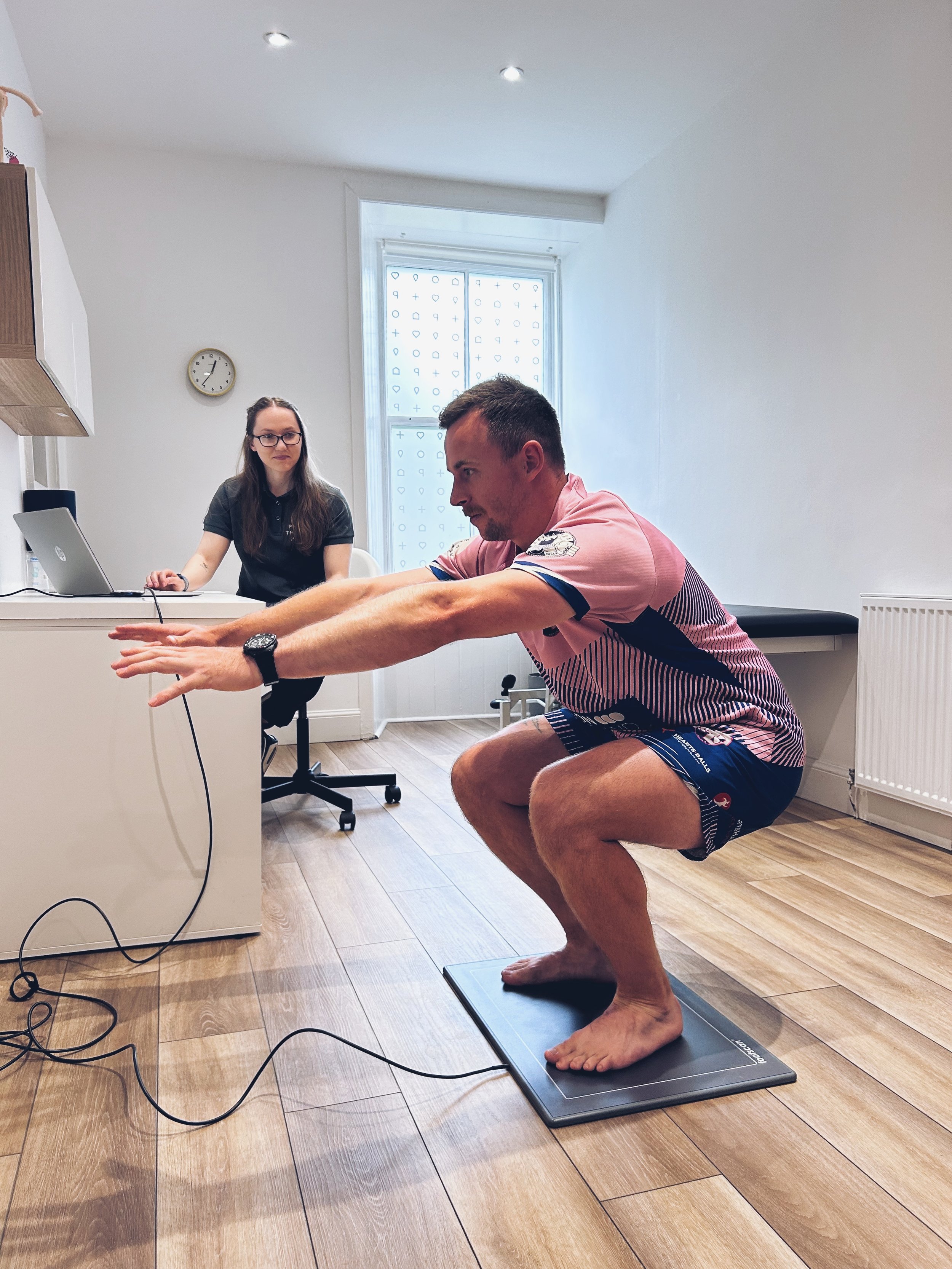What Is Runner’s Knee?
Patellofemoral pain syndrome, otherwise known as Runner’s Knee, is a common condition of the knee and one that we see plenty of at The Physiotherapy Place. It is thought to happen when additional stress is placed on the joint between your knee cap and thigh bone (femur).
Typical symptoms of runner’s knee include:
Pain at the front of the knee, around the knee or behind the kneecap
Pain when running
Pain and stiffness after sitting for long periods of time
Pain when going up or down stairs
Pain with squatting
What Causes Runner’s Knee?
Pain around the kneecap is often a sign of overuse and is especially common in those who do sport involving running, hence the name runner’s knee. This can be due to:
A recent increase in exercise frequency or intensity
Weakness in thigh and hip muscles
Tightness in calf, hip or thigh muscles
Foot mechanics and gait pattern - the way that you walk/run and where your weight goes can place added stress at the knee
Footwear - wearing footwear with poor support can contribute to worsening symptoms
Footscan Technology And Runner’s Knee
At The Physiotherapy Place we are proud partners of Gait and Motion Clinics, whose Footscan Technology provides cutting edge data on where the forces go in our feet when we stand, walk, and run. It produces a detailed report that allows us to identify areas of high pressure and force distribution, which areas of the feet might be taking the most load, and where and when each part of the foot is in contact with the ground. We can also use it to check if you are weight bearing equally between both sides, and assess dynamic movements such as squats and balance.
The results are then used to tailor your physiotherapy treatment so that we can be confident that we are targeting the problem areas. If there are tight muscles or stiff joints, then we might do a program of manual therapy, soft tissue release, and targeted exercise to address this. We would then reassess with the footscanner after 2-3 months to see if the results have changed and symptoms have improved.
The other amazing feature of the footscan system is that it is the first system that allows us to construct 3D printed orthotics from the data gathered in the analysis. Whereas traditionally orthotics have been prescribed based on a static mould of the foot, these are made based on the dynamic forces going through the foot whilst walking and/or running. This means that these orthotics are likely to be very effective at treating your pain.
Runner’s Knee And Custom Orthotics
Having poor footwear can lead to an increased risk of developing runner’s knee if the shoes aren’t providing enough support for the repetitive impact. Typically, appropriate footwear for running will be a shoe that provides good stability, support, cushioning and is comfortable to wear. However, this does not consider the individual differences in foot mechanics, weight distribution, and running pattern - factors that can cause and worsen runners knee symptoms. For example, if you have flat feet or over/under pronate, the altered foot mechanics can place additional stress on the knees, leading to pain. Orthotics are a common treatment option for those with knee pain to help correct foot mechanics. The customised orthotic insoles offered by us at The Physiotherapy Place are created using your personalised dynamic foot scan data.
Unlike insoles off the shelf, custom orthotics cater to your individual foot shape, force distribution and support needs, ensuring that your feet are getting the exact support that they need. Our orthotics are the first 3D printed insoles based on your foot scan analysis and can be inserted into whichever shoes you prefer. They are lightweight, stable and extremely durable so not only can one pair provide a quick resolution to your pain, they will also last for years keeping you doing the things you want to do pain-free.
Book your Footscan Assessment with a member of our physio team at our Musselburgh location by clicking here and remember we are here to chat before you book if you are unsure if this is the correct route for you. You can book your FREE phone consultation directly online here and one of our physios will call you back as soon as possible.

